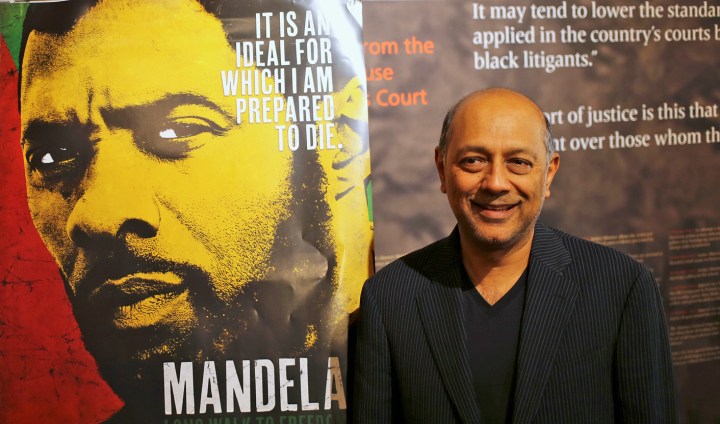South Africa
Africa Check: Did the Mandela movie ‘sustain’ 12,000 jobs over two years? The claim is false

South Africa’s National Empowerment Fund says that 12,000 jobs were “sustained” over two years during the production of the film, Mandela: Long Walk to Freedom. But the claim is false. As Africa Check discovered, most of those jobs lasted just two days. Researched by Kate Wilkinson for AFRICA CHECK.
With a budget of $35-million, it has been described as the most expensive South African film ever made. In its opening week in South Africa, despite some controversy over its historical accuracy, Mandela: Long Walk to Freedom quickly became the country’s highest grossing movie.
And, according to both the National Empowerment Fund (NEF), a statutory body established to support and promote black economic empowerment, and South Africa’s Department of Trade and Industry the film “created” and “sustained” 12,000 jobs over the two years it took to make.
But what sorts of jobs were created, how long were the contracts for and what salaries were paid? A reader asked Africa Check to investigate.
The claims
NEF chief executive, Philisiwe Mthethwa, has been quoted as saying that “[a] total of 12,000 jobs were sustained over a period of two years during production of the film”. According to Mthethwa, the NEF approved a loan of R50-million (about $4.8-million) for the film “because the commercial merits of the [loan] application were as compelling as the patriotic and heritage value of the story”.
The Department of Trade and Industry, which backed the film “to the amount of R60-million (about $5.8-million), in terms of a highly competitive rebate system”, also claimed it had created 12,000 jobs. “[T]he beauty of this job-creation exercise was that all these jobs were transferred from highly-skilled international practitioners to local people,” the department stated in a press release.
It also tweeted that “[t]he production of ‘Long Walk to Freedom’ has created 12,000 local jobs” and attributed the claim to Trade and Industry Minister Rob Davies.
11,000 extras worked just two days each
In response to questions, Moemise Motsepe, a spokesman for the NEF, provided Africa Check with a copy of a letter from Robert Naidoo, one of the film’s co-producers.
Dated 9 December 2013, it stated that 11,721 South Africans were employed during the production of the film. Of that number, 668 crew members were employed for an average period of 30 weeks at a gross cost of R50,586,051. On average, each person therefore received a total of R75,728.
Another 131 people, described as “cast members”, were employed for an average of 18 weeks at a cost of R5,371,226. That works out to an average payment of R41,002 per person.
A further 10,922 people were employed as extras with an average period of employment of two days at a gross cost of R4,790,245. That is an average of R439 per person.
Most jobs were ‘temporary’
Naidoo added that “[t]hese figures are direct employment figures and do not include indirect jobs via Supplier Agreements…[an average] of 20 catering staff supplied by the catering company [were] not included as we paid the Catering Company and they in turn paid the catering staff”. He said the same was true of other services used during the production.
Figures provided to Africa Check by the Department of Trade and Industry of the number of people employed during the making of the film differed slightly from those provided by Naidoo to the NEF.
According to the department, 12,268 people were employed in various capacities during the making of the film including 11,844 “extras”, 130 “cast”, 249 “crew”, 28 “creative personnel” and 17 people from a “special purpose vehicle company”.
The department conceded, in response to Africa Check’s questions, that most of the jobs were “temporary”.
Conclusion – The film did not ‘sustain’ 12,000 jobs over two years
The National Empowerment Fund’s claim that the film “sustained” 12,000 jobs over a two year period is false. Around 11,000 of those employed were employed for just two days each and paid around R439.
And the Department of Trade and Industry’s claim in a press statement and a tweet that 12,000 jobs were “created” – without any qualification or explanation that the bulk of the jobs were temporary – was misleading and disingenuous. DM
Edited by Julian Rademeyer
Photo: Film producer Anant Singh poses for photographs during the launch of the movie trailer of “Mandela: Long Walk to Freedom” at the Nelson Mandela Centre of Memory in Johannesburg, September 17 2013. REUTERS/Siphiwe Sibeko

















 Become an Insider
Become an Insider